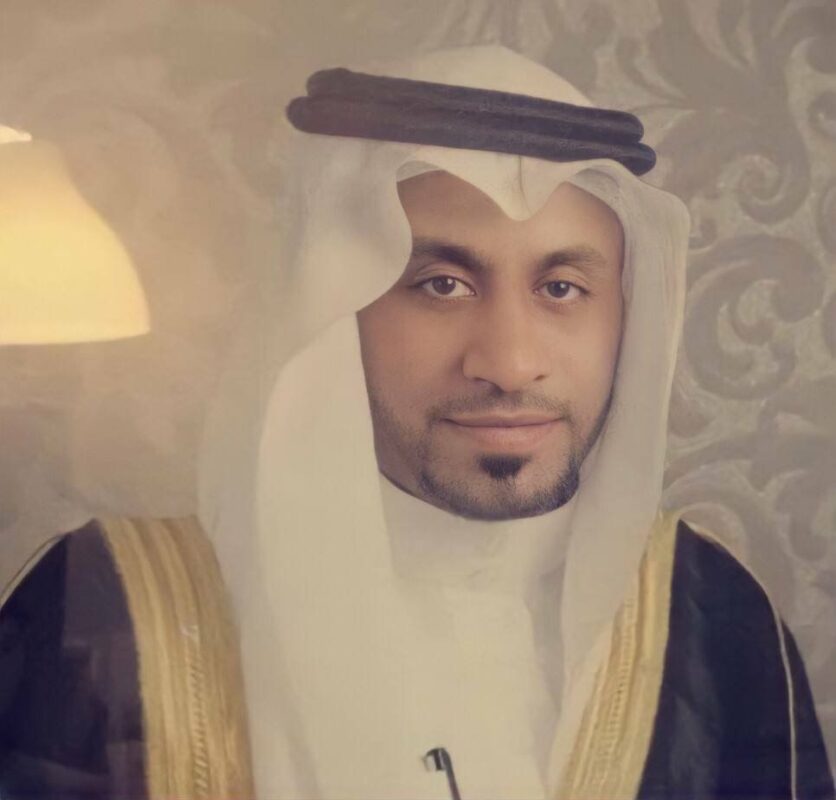
In July 2021, Saudi Arabia's Court of Appeals approved a Tazir death sentence for young Assad Makki Shuber Ali. Despite Mohammed bin Salman's pledge in 2021 to reforms in the executions file.
Young man Shaber Ali, (1 July 1984) was arrested on 28 April 2017, in the Aseer area without presenting an arrest warrant, while driving his wife to the school where she works.
Shuber was held solitary confinement for four months, during which he was unable to communicate with his family or the outside world. He was also subjected to various types of physical and psychological torture in order to force him to "fingerprint" a confession written by the investigator himself, resulting in severe injuries to his back. Shuber asked the investigator to take him to the hospital for treatment, but he did not respond, leaving him in constant pain.
Among the torture methods used against him were:
- Beatings with hands, legs, whips, wire and other instruments throughout his body and face with a focus on the lower back since the investigator knew that he had a back vertebrae injury, as well as beatings in sensitive areas of his body.
- Threatening him with striping him of his clothes and indecent assault him by bringing his wife and assaulting her, and depriving him of family visits.
- Threatening to break his back and cause him permanent disability prevents him from walking.
- Forcing him to stand for long hours lifting his hands or standing on one leg.
- Speaking to him in the most horrible profanity and sectarianism.
In addition to being isolated in solitary confinement and torture, he was denied access to a lawyer during the investigation, forced to authenticate statements written by the investigator himself and denied contact with his family for months.
In May 2019, almost two years after his arrest, the Specialized Criminal Court held his first hearing alongside with the two young men, Hussein Habib al-Said and Raed al-Khair, for a mass trial that lasted for more than two years.
Among the charges against him were, joining an armed terrorist organization, participating in demonstrations and chanting political slogans, calling for demonstrations and sit-ins, possession of a Picture of Human Rights and Freedoms Advocate Sheik Nimr Baqir Al Nimr, who was executed on 2 January 2016, having images of war weapons and fighters with weapons, chanting political slogans at demonstrations.
According to official documents reviewed by the organization, the young man denied the charges against him, and stressed that his statement was approved under physical and psychological torture. He also mentioned that some of the charges against him in the list of charges, such as joining a terrorist organization, had no basis in the declarations. In addition, Shuber requested to bring the camera recording of the investigation sessions.
Despite the allegations of torture before the court, and the deprivation of all the fundamental rights of the accused during the investigation, the judge did not care about this and issued his sentence of execution, in flagrant violation of article 12 of the Convention against Torture, which states, "Each State Party shall ensure that its competent authorities conduct a prompt and impartial investigation whenever there are reasonable grounds to believe that an act of torture was committed in any territory under its jurisdiction. And article 15 of the same Convention, which states "each State Party shall ensure that any statement that is established to have been made as a result of torture shall not be invoked as evidence in any proceedings, except against a person accused of torture as evidence of such statement.
The conviction of young man Assad Shuber on serious charges based on confessions extracted under torture without providing solid evidence is not an exceptional case. Since the "Arab Spring Revolutions" began, Saudi Arabia has charged dozens of people with links to countries, organizations, groups, and parties classified as "terrorism". In April 2019, 11 people were executed on charges of spying for Iran in a mass executions massacre involving 37 people, including children.
Saudi Arabia also condemned several activists on charges of association with countries and organizations. For example, the Saudi Public Prosecution accused the human rights defender of communicating with the UN Human Rights Council while she was a temporary seat. All persons charged with links to other countries, organizations, parties were not given a fair trial and were charged depending on the political temperament. Most have also been subjected to physical and psychological torture, as well as to solitary confinement for months.
Asaad Shuber Ali faces the final judicial phase of his death sentence, as the Specialized Appeals Court ratified the sentence after it was issued by the Specialized Criminal Court in January 2021. If the Supreme Court ratifies the sentence, it could be carried out at any moment.
Since the beginning of 2021, Saudi Arabia has carried out 50 executions, a doubling of the numbers for the year 2020. This rise reveals that the drop in executions last year is not a serious shift to restrict the use of the arbitrary death penalty.
The approval of the death sentence against Asaad on charges that are not very serious, shows Saudi Arabia's recklessness and leniency in the use of this punishment.
The European Saudi Organization for Human Rights confirms that the life of young Assad Makki Shuber Ali is threatened at any moment, as the documentation of similar cases confirmed that the judicial procedures are unexpected and could be rushed or delayed by the Saudi government without any rules. The organization points out that the recent accelerated verdicts indicate an official intention in Saudi Arabia to proceed with executions and death sentences, contrary to promises made in recent years. The organization stresses that arbitrary killings and unfair trials show that the bloody course of recent years on the death penalty continues.
